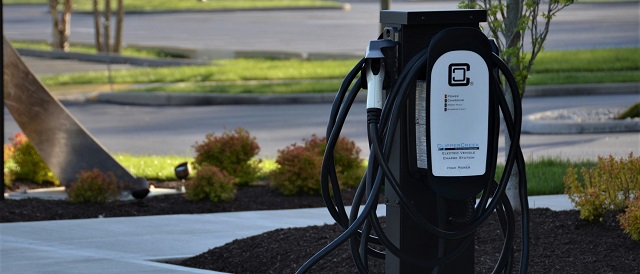Business
Planet Fitness says ‘discomfort’ not a reason to ban ‘transgender’ men from women’s locker rooms

From LifeSiteNews
The company’s stock plummeted after it terminated a member who exposed a man shaving in a woman’s locker room in front of a girl estimated to be around 12 years old.
Popular exercise chain Planet Fitness is doubling down on its prioritization of “gender identity” over female customers’ welfare, putting in writing that “discomfort” over sharing intimate facilities with the opposite sex should not be accommodated.
Planet Fitness, which for years has allowed gender-confused men in women’s locker rooms, came back in the news this month when an Alaskan Planet Fitness member named Patricia Silva shared online a video she took of a man who “identifies” as a woman shaving in a women’s locker room. She said that at the time of the incident, a girl estimated to be 12 years old was sitting in a corner, wrapped in a towel, and “freaked out” by having an adult male in her changing area.
In accordance with the company’s woke priorities, however, instead of removing the man, Planet Fitness revoked Silva’s membership, citing her violation of a policy against photographing other gym members.
“So, I would like for you women to stand up and have a voice and stop these shenanigans,” Silva said. “You have authority! Use your authority.”
Since the story broke, Planet Fitness’s stock price has dropped from $66.92 on March 7 to $56.46 on March 19. “The chain saw a $400 million dive in valuation from $5.3 billion to $4.9 billion,” Fox Business reported Thursday.
But the company is digging in its heels.
Chief corporate affairs officer McCall Gosselin told the Christian Post that the policy is part of the company’s vision of an “inclusive environment,” and that its “gender identity non-discrimination policy states that members and guests may use the gym facilities that best align with their sincere, self-reported gender identity.” The company also said that members claiming trans status may only be asked to leave “if it is confirmed that a member is acting in bad faith” and is not sincerely gender confused.
Libs of TikTok also shared a page from Planet Fitness’s operations manual, which states that “Some members may feel uncomfortable with a transgender member using the same locker room facilities, bathrooms, showers, or other facilities/programs separated by sex,” but “this discomfort is not a reason to deny access to the transgender members.” It calls on staff to resolve such situations by attempting to “foster a climate of understanding,” i.e., transgender accommodation.
The company “reserves the right to terminate a person’s membership immediately for any violation of this policy,” which also requires staff (but not explicitly members) to honor preferred names and gender pronouns.
WOW. Planet Fitness is standing by their decision to allow men in women's locker rooms.
Their policies actually allow males in female spaces. They instruct women to just deal with their discomfort and make sure not to misgender the trans person in their locker room.… https://t.co/1fA52PY21Q pic.twitter.com/wl5ZCxMtVs
— Libs of TikTok (@libsoftiktok) March 15, 2024
Conservatives have long argued that forcing girls to share intimate facilities such as bathrooms, showers, or changing areas with members of the opposite sex violates their privacy rights, subjects them to needless emotional stress, and gives potential male predators a viable pretext to enter female bathrooms or lockers by simply claiming transgender status. (Planet Fitness ostensibly accounts for the last danger by reserving the right to eject men who are only faking gender confusion, but in practice such a policy is unlikely to be enforced for fear of being branded “intolerant” and the difficulty of proving what may be going on in someone’s mind.)
The harm has been highlighted by University of Pennsylvania swimmer William “Lia” Thomas, who reportedly retains male genitalia and is still attracted to women yet “identifies” as female and lesbian, causing his female teammates unrest due to sharing lockers with them; and by Loudoun County Public Schools in Virginia, where a female student was raped by a “transgender” classmate in a girls bathroom.
Automotive
New Analysis Shows Just How Bad Electric Trucks Are For Business

 From the Daily Caller News Foundation
From the Daily Caller News Foundation
By WILL KESSLER
Converting America’s medium- and heavy-duty trucks to electric vehicles (EV) in accordance with goals from the Biden administration would add massive costs to commercial trucking, according to a new analysis released Wednesday.
The cost to switch over to light-duty EVs like a transit van would equate to a 5% increase in costs per year while switching over medium- and heavy-duty trucks would add up to 114% in costs per year to already struggling businesses, according to a report from transportation and logistics company Ryder Systems. The Biden administration, in an effort to facilitate a transition to EVs, finalized new emission standards in March that would require a huge number of heavy-duty vehicles to be electric or zero-emission by 2032 and has created a plan to roll out charging infrastructure across the country.
“There are specific applications where EV adoption makes sense today, but the use cases are still limited,” Karen Jones, executive vice president at Ryder, said in an accompanying press release. “Yet we’re facing regulations aimed at accelerating broader EV adoption when the technology and infrastructure are still developing. Until the gap in TCT for heavier-duty vehicles is narrowed or closed, we cannot expect many companies to make the transition, and, if required to convert in today’s market, we face more supply chain disruptions, transportation cost increases, and additional inflationary pressure.”
Due to the increase in costs for businesses, the potential inflationary impact on the entire economy per year is between 0.5% and 1%, according to the report. Inflation is already elevated, measuring 3.5% year-over-year in March, far from the Federal Reserve’s 2% target.
Increased expense projections differ by state, with class 8 heavy-duty trucks costing 94% more per year in California compared to traditional trucks, due largely to a 501% increase in equipment costs, while cost savings on fuel only amounted to 52%. In Georgia, costs would be 114% higher due to higher equipment costs, labor costs, a smaller payload capacity and more.
The EPA also recently finalized rules mandating that 67% of all light-duty vehicles sold after 2032 be electric or hybrid. Around $1 billion from the Inflation Reduction Act has already been designated to be used by subnational governments in the U.S. to replace some heavy-duty vehicles with EVs, like delivery trucks or school buses.
The Biden administration has also had trouble expanding EV charging infrastructure across the country, despite allotting $7.5 billion for chargers in 2021. Current charging infrastructure frequently has issues operating properly, adding to fears of “range anxiety,” where EV owners worry they will become stranded without a charger.
Business
When politicians gamble, taxpayers lose

From the Canadian Taxpayers Federation
Author: Jay Goldberg
Trudeau and Ford bragged about how a $5 billion giveaway to Honda is going to generate 1,000 jobs. In case you’re thinking of doing the math, that’s $5 million per job.
Politicians are rolling the dice on the electric vehicle industry with your money.
If they bet wrong, and there’s a good chance they have, hardworking Canadians will be left holding the bag.
Prime Minister Justin Trudeau and Premier Doug Ford announced a $5-billion agreement with Honda, giving another Fortune 500 automaker a huge wad of taxpayer cash.
Then Trudeau released a video on social media bragging about “betting big” on the electric vehicle industry in Canada. The “betting” part of Trudeau’s statement tells you everything you need to know about why this is a big mistake.
Governments should never “bet” with taxpayer money. That’s the reality of corporate welfare: when governments give taxpayer money to corporations with few strings attached, everyday Canadians are left hoping and praying that politicians put the chips on the right numbers.
And these are huge bets.
When Trudeau and Ford announced this latest giveaway to Honda, the amount of taxpayer cash promised to the electric vehicle sector reached $57 billion. That’s more than the federal government plans to spend on health care this year.
Governments should never gamble with taxpayer money and there are at least three key reasons why this Honda deal is a mistake.
First, governments haven’t even proven themselves capable of tracking how many jobs are created through their corporate welfare schemes.
Trudeau and Ford bragged about how a $5 billion giveaway to Honda is going to generate 1,000 jobs. In case you’re thinking of doing the math, that’s $5 million per job.
Five million dollars per job is already outrageous. But some recent reporting from the Globe and Mail shows why corporate welfare in general is a terrible idea.
The feds don’t even have a proper mechanism for verifying if jobs are actually created after handing corporations buckets of taxpayer cash. So, while 1,000 jobs are promised through the Honda deal, the government isn’t capable of confirming whether those measly 1,000 jobs will materialize.
Second, betting on the electric vehicle industry comes with risk.
Trudeau and Ford gave the Ford Motor Company nearly $600 million to retool a plant in Oakville to build electric cars instead of gasoline powered ones back in 2020. But just weeks ago, Ford announced plans to delay the conversion for another three years, citing slumping electric vehicle sales.
Look into Ford’s quarterly reports and the danger of betting on electric vehicles becomes clear as day: Ford’s EV branch lost $1.3 billion in the first quarter of 2024. Reports also show Ford lost $130,000 on every electric vehicle sold.
The decline of electric vehicle demand isn’t limited to Ford. In the United States, electric vehicle sales fell by 7.3 per cent between the last quarter of 2023 and the first quarter of 2024.
Even Tesla’s sales were down 13 per cent in the first quarter of this year compared to the first quarter of 2023.
A Bloomberg headline from early April read “Tesla’s sales miss by the most ever in brutal blow for EVs.”
There’s certainly a risk in betting on electric vehicles right now.
Third, there’s the question of opportunity cost. Imagine what else our governments could be doing with $57 billion?
For about the same amount of money, the federal government could suspend the federal sales tax for an entire year. The feds could also use $57 billion to double health-care spending or build 57 new hospitals.
The solution for creating jobs isn’t to hand a select few companies buckets of cash just to lure them to Canada. Politicians should be focusing on creating the right environment for any company, large or small, to grow without a government handout.
To do that, Canada must be more competitive with lower business taxes, less red tape and more affordable energy. That’s a real recipe for success that doesn’t involve gambling with taxpayer cash.
It’s time for our politicians to kick their corporate welfare addiction. Until they do, Canadians will be left paying the price.
-

 John Stossel2 days ago
John Stossel2 days agoThe Swamp Survived: Why Trump Failed to “Drain the Swamp”
-

 Energy2 days ago
Energy2 days agoU.S. EPA Unveils Carbon Dioxide Regulations That Could End Coal and Natural Gas Power Generation
-

 Environment2 days ago
Environment2 days agoScientific Report Pours Cold Water On Major Talking Point Of Climate Activists
-

 Automotive1 day ago
Automotive1 day agoNew Analysis Shows Just How Bad Electric Trucks Are For Business
-

 Education1 day ago
Education1 day agoSchools shouldn’t sacrifice student performance to vague notions of ‘equity’
-

 Alberta Sheriffs Branch2 days ago
Alberta Sheriffs Branch2 days agoCrown appeal against acquitted peaceful protestor Evan Blackman back in court June 19
-

 Opinion1 day ago
Opinion1 day agoBoy Scouts of America changes name to ‘Scouting America’ to be ‘more inclusive’
-

 conflict2 days ago
conflict2 days agoAmerica Is Really Bad At Foreign Interventions. Why Does Biden Think Ukraine Will Be Any Different?





